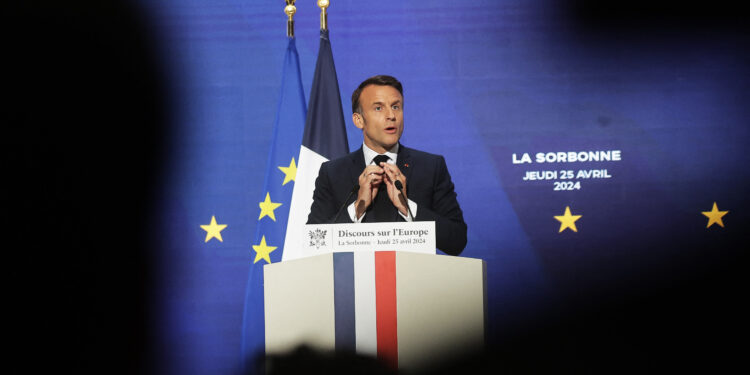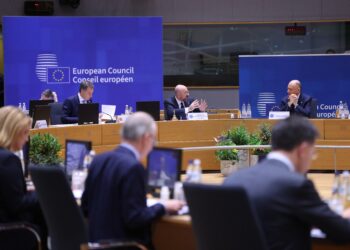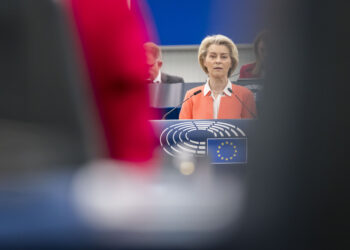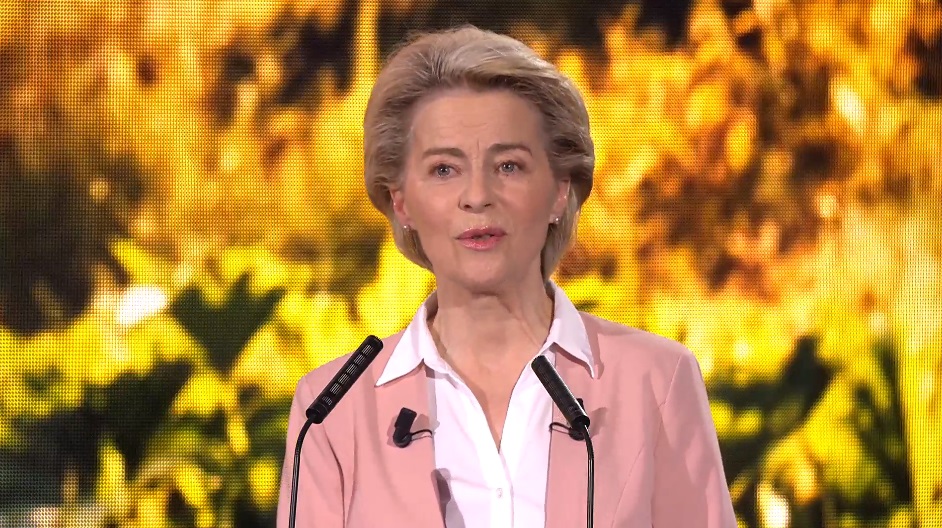Brussels – There is no explicit attack on Ursula von der Leyen in French President Emmanuel Macron‘s nearly two-hour long policy speech. To be fair, the only reference to von der Leyen is “the President of the European Commission” in the very first lines (and secondary to the name of the French Commissioner for the Internal Market, Thierry Breton). But the sense of the speech on Europe he delivered yesterday (April 25) at the Sorbonne is an implicit change of course at the top of the Union’s executive to lead an unprecedented challenge: “We must be lucid that our Europe today is mortal. It can die. And that depends solely on our choices, which must be made now.”

A “simple” message that is not so simple. In addition to the threats and possible answers put on the table, Macron began to uncover the Pandora’s box of leadership for the next (one or more, because it will not be possible to solve everything he mentioned in a single five-year term) European Commission. And he did so on the very day when the European Parliament in Strasbourg – in France – met in plenary session for the final vote of this legislature, marking the start of the election campaign that will take the citizens of the 27 member countries to the polls between June 6 and 9. “We are at a turning point, and our Europe is mortal. It simply depends on us.”
Peace and war on the continent, defense and security, digital transition and artificial intelligence, decarbonization, industrial production and competitiveness, and response to “the attack on liberal democracies, on our values, on what is the very foundation of European civilization.” These are the challenges that “are being played out today,” Macron said, but “everything has changed” compared to the recent past. A (new?) European leadership should focus on three lines of action: “Power, prosperity, and humanism.” In particular, “prosperity” shows all of its limits, if not of von der Leyen as president of the EU Commission, at least of the approach of the Union’s executive: “The rules of the game have changed. The solution lies in our ability to take massive strategic decisions and to assume paradigm shifts,” Macron said, speaking explicitly of “a new model of growth and production.” These goals for Macron are “clear,” but “we are not there, and we cannot achieve them with the rules” of “competition, trade, monetary, and budgetary policy that we have today. We will not succeed.”

The President of the European Commission and Spitzenkandidatin of the European People’s Party, Ursula von der Leyen, at the EPP Congress in Bucharest on March 7, 2024 (credits: Daniel Mihailescu / Afp)
If the response of the von der Leyen Commission – and its predecessors, for intellectual honesty’s sake – could still work in the past, “in an ordoliberal model of competition and free trade,” for a future in which “the rules of trade are changing,” this approach is now inadequate: “We regulate too much, we invest too little, we are too open, and we do not defend our interests enough. That is the reality.” It is hard to change the game by not changing the coach (who, instead, is again running to lead the EU executive as Spitzenkandidatin of the European People’s Party).
“For a long time, Europe was the main resource of our growth,” Macron recalled. “Raw materials did not seem to be limited, climate change was ignored, trade was free, and everyone respected the rules.” This world no longer exists. “We are dependent on fossil fuels, unlike the United States of America and many other countries. We need critical materials, and China has started to trade them and secure a lot of capacity.” Considering this scenario, the future of the Union must be to “build a new model of growth and production.” Since “there can be no power without a solid economic base. Otherwise, we declare it, but others finance it.” And there can be neither ecological transition nor one of Europe’s “strengths,” the social model, “if we do not produce the money that we want to redistribute.” Von der Leyen has had to deal with a pandemic and two wars, which have complicated her path as President of the European Commission in no small measure. But for the future of the Union, according to the French President, the search for new leadership should not go in the direction of confirming those inevitably tied to the solutions of the past, even in the recent past.
English version by the Translation Service of Withub









